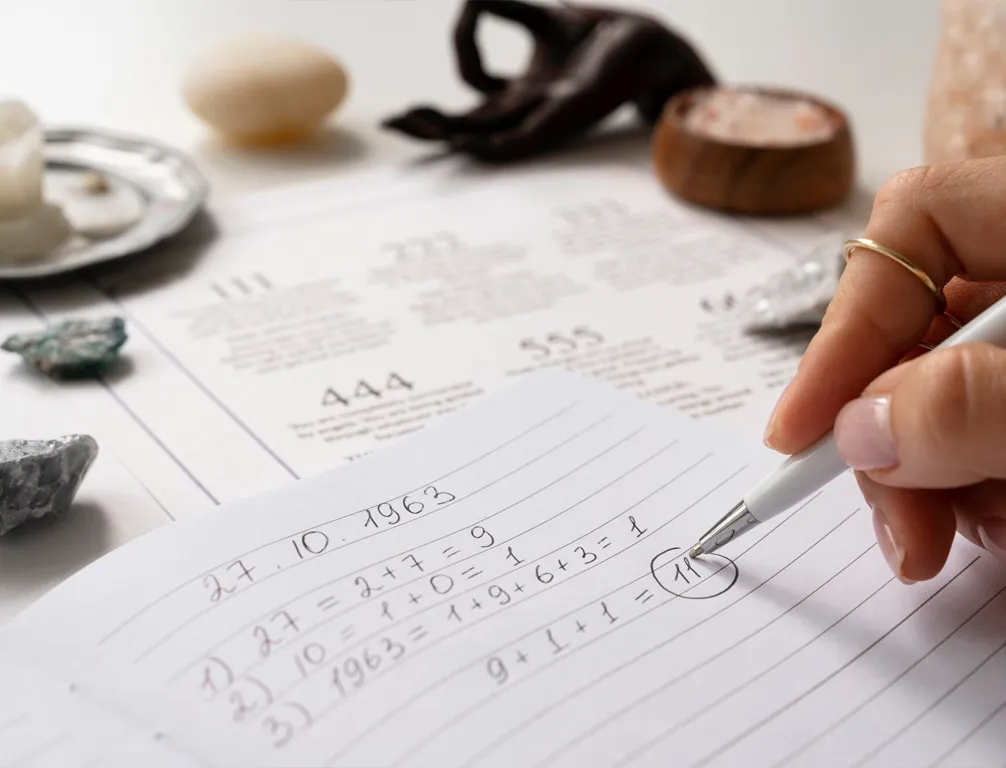Blog
What Is a Life Path Number?

The first time I heard the term “Life Path Number,” I was sitting on the balcony of my Borivali flat, where my mother still lives. It was July 2018, and the air had that heavy, humid stillness that Mumbai is famous for right before the rain hits. My sister Jini had dropped by with a friend, a soft-spoken man named Sameer who, halfway through his chai, suddenly asked for my birth date. I thought he was just making small talk, but within minutes he was jotting numbers on a scrap of paper and telling me I was a Life Path 8.
I blinked. “Is that… good?” I asked. He smiled like he’d been asked that a hundred times. “It’s not about good or bad. It’s about who you are—and what you’re meant to do.”
At its simplest, a Life Path Number is one of the core elements in numerology, calculated from your full date of birth. It’s believed to reveal your natural strengths, recurring challenges, and overarching life themes—basically the blueprint of your journey. The math is straightforward: add every digit in your birth date together, keep adding until you get a single digit, unless it’s a master number like 11, 22, or 33. Those are left as they are.
So, let’s say you were born on 14th March 1990. You’d do: 1 + 4 + 3 + 1 + 9 + 9 + 0 = 27. Then 2 + 7 = 9. That makes your Life Path Number a 9—associated with compassion, service, and a broader view of the world.
The numbers from 1 to 9 (and the master numbers) each carry a unique “vibration,” as numerologists put it. Life Path 1s are leaders and initiators. 2s often play the role of diplomats. 4s value stability and structure. And so on. In my case, 8 is linked to ambition, power, and material mastery, which, at that time, felt laughable—I was working long hours but barely scraping by. Still, looking back, I can see how that push toward building something substantial has been a theme in my life, whether in work, relationships, or even my stubborn approach to home renovations.
Some people treat their Life Path Number like a signpost. My brother Harshil, a Life Path 5, thrives on variety and travel—he’s always switching jobs, learning new skills, hopping from one city to another. My sister-in-law Kanika is a Life Path 6, the nurturer archetype, and she’s the one everyone calls when they’re sick, stressed, or just need someone to listen without judgment.
There’s debate about whether these meanings are anything more than a psychological mirror. Skeptics will point out that the descriptions are broad enough to fit most people. And yes, that’s true to an extent. But sometimes, the fit feels too precise to ignore. I remember when my husband Karn calculated his number—he’s a Life Path 4—and suddenly we were laughing about how his meticulous spreadsheets and obsession with routines finally made sense.
Here’s the part I find most valuable: a Life Path Number isn’t about predicting your future. It’s about recognising your natural patterns so you can work with them instead of against them. If you’re a 7 and you’re forcing yourself into constant socialising, you might burn out. If you’re an 8 avoiding responsibility, you’ll probably feel unfulfilled.
It’s a bit like knowing the terrain before you start a long hike. You can still take detours, explore off-trail, even climb a hill you weren’t planning to—but having that map means you understand where the valleys, peaks, and tricky crossings might be.
Sameer was right. It’s not about good or bad. It’s about clarity. And sometimes, clarity is exactly the thing you didn’t know you were missing.

